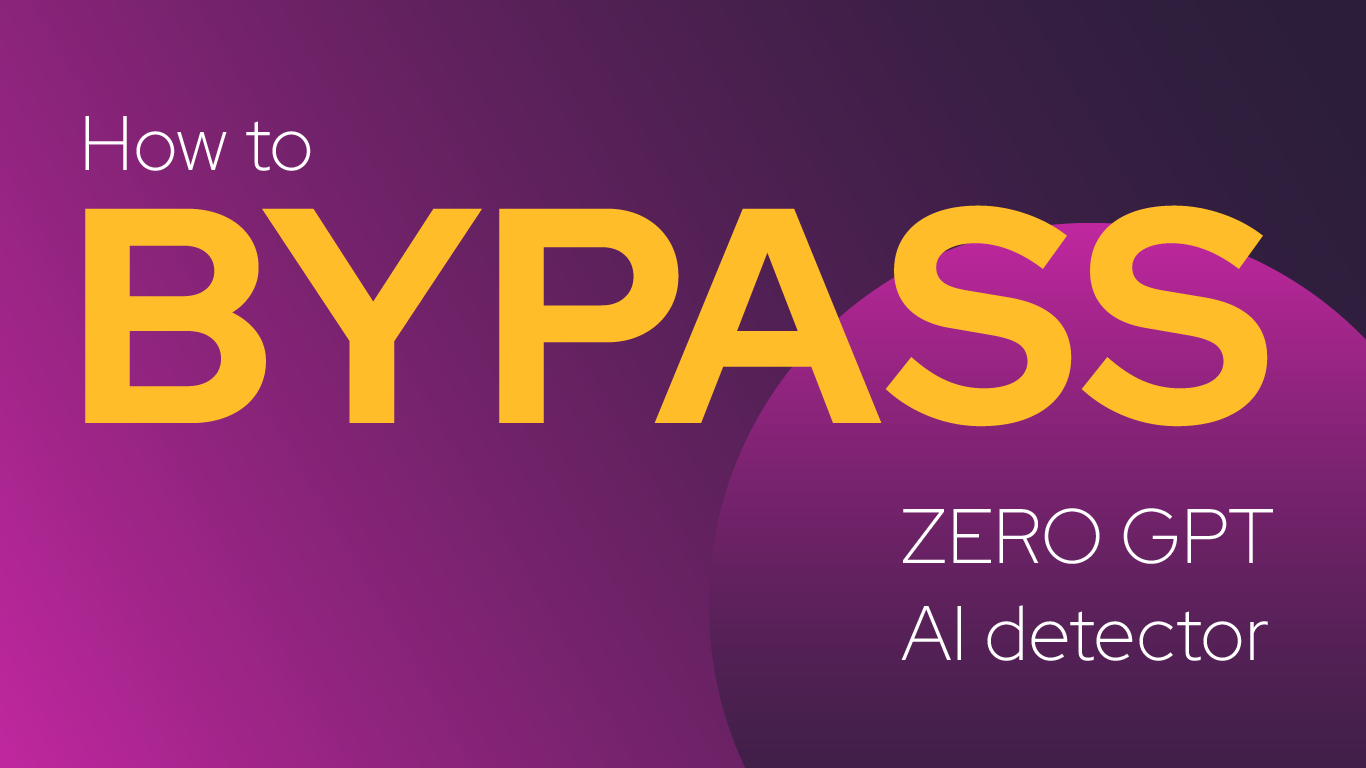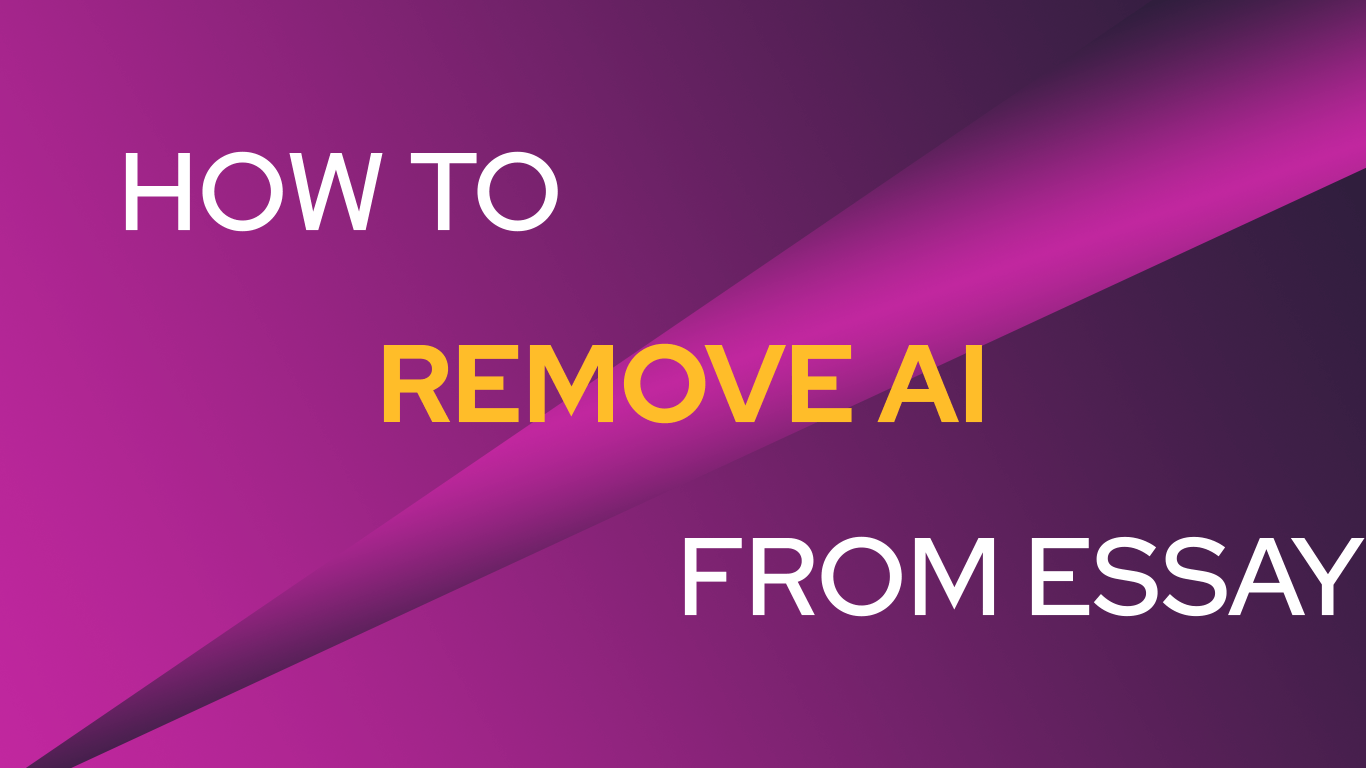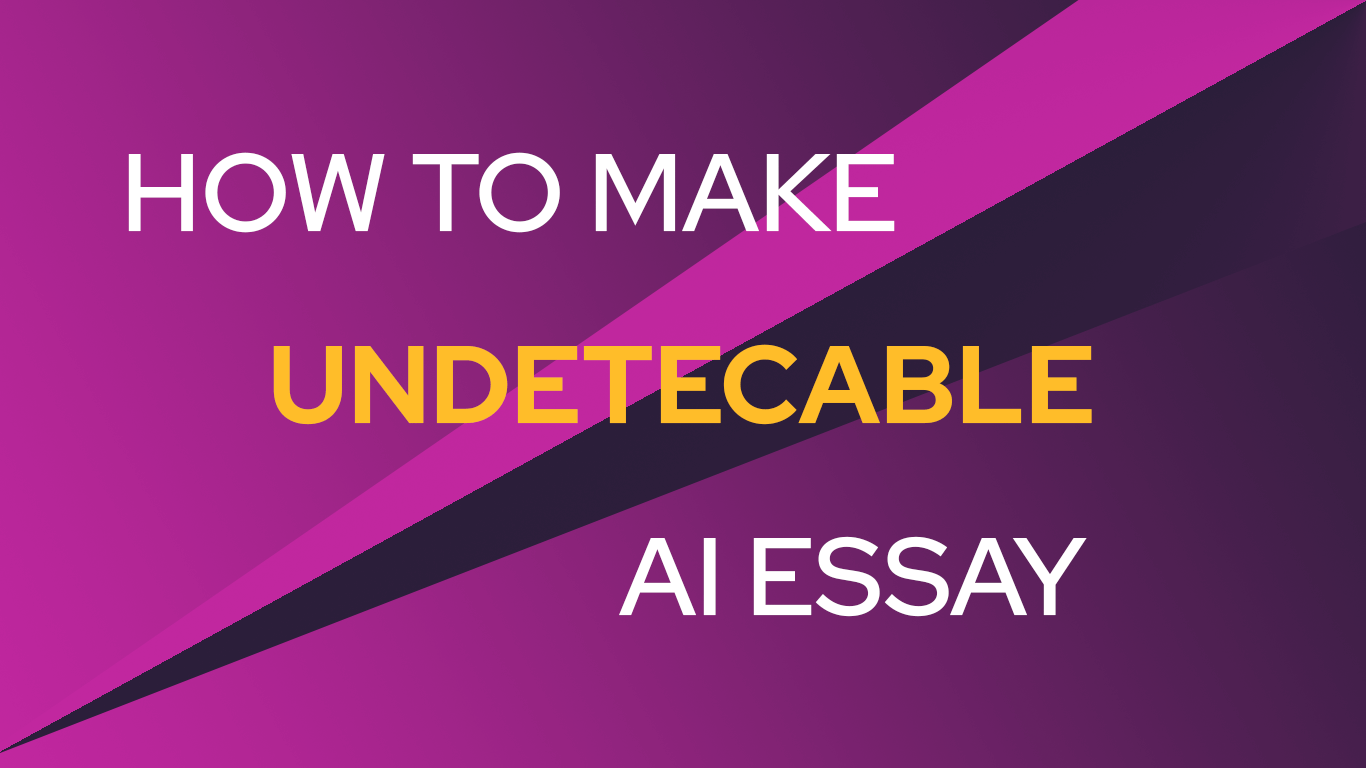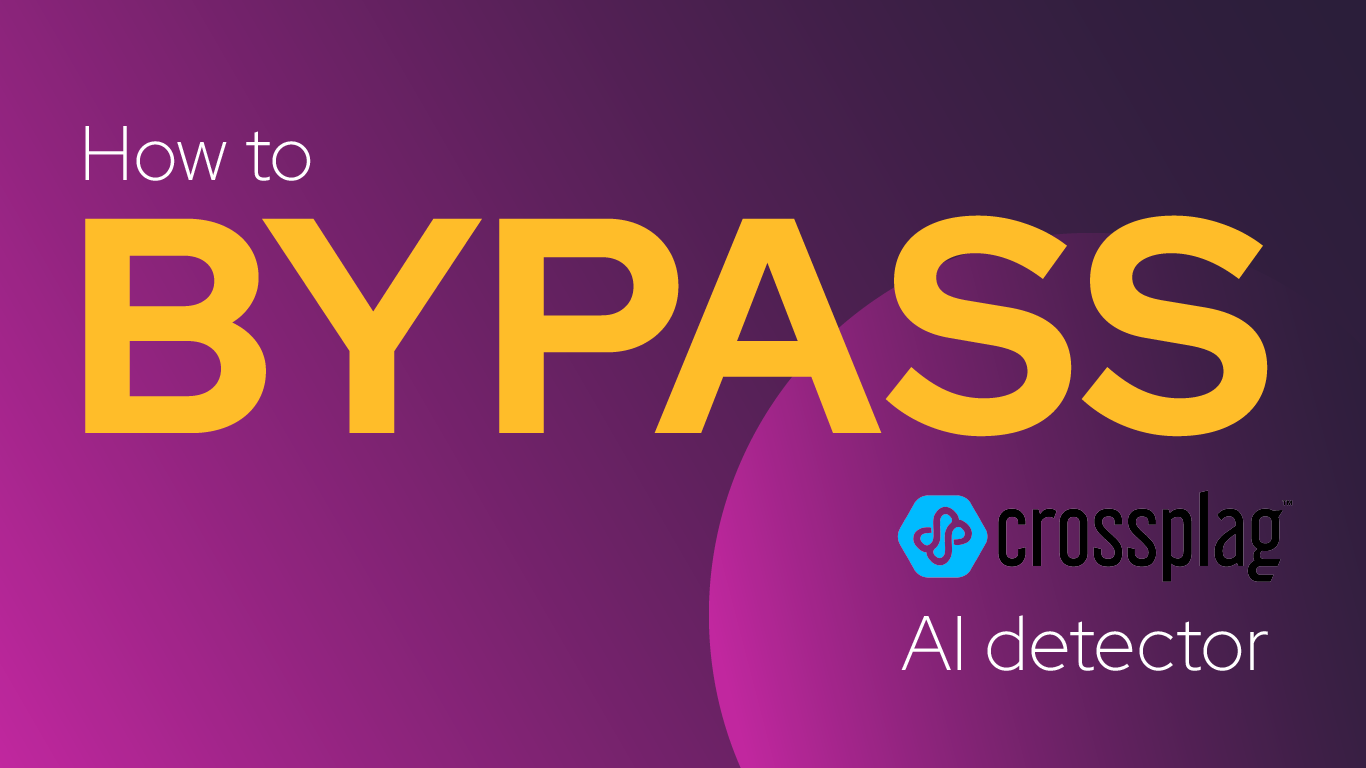AI detection technology has surged in recent years, with tools like Winston AI, Turnitin, and Copyleaks accurately identifying AI-generated text. For those who use AI writers and want to avoid detection, this guide outlines methods to bypass AI checkers and highlights the top undetectable writing tools available.
What are AI Detectors Used For?
AI detection tools are designed to scan and identify text produced by AI, posing significant challenges for individuals who rely on AI writers. As AI-generated content becomes more prevalent, these detectors have become increasingly sophisticated, employing advanced algorithms and extensive datasets to flag AI-written material. Despite their capabilities, it is possible to bypass these detectors with the right techniques and tools, ensuring your content remains undetectable while maintaining high quality and originality.

ZeroGPT and Its Capabilities
ZeroGPT is a sophisticated AI detection tool specifically designed to identify AI-generated content. As the prevalence of AI writing tools increases, ZeroGPT has emerged as a crucial technology in maintaining the integrity of digital content by detecting and flagging text produced by AI. Here’s a closer look at the key capabilities and features of ZeroGPT:
Advanced Algorithms and Machine Learning Models
ZeroGPT employs cutting-edge algorithms and machine learning models to detect AI-generated content with remarkable accuracy. Its detection mechanism revolves around analyzing patterns characteristic of AI-written text. These patterns include:
- Syntax Structure: AI-generated texts often exhibit consistent and predictable syntax structures, unlike human-written content which tends to be more varied.
- Vocabulary Usage: AI content typically uses a narrower range of vocabulary compared to human writers who exhibit a broader lexicon and more nuanced word choices.
- Statistical Distribution: ZeroGPT examines the statistical distribution of words and phrases within a text to identify irregularities that suggest AI involvement.
By leveraging these techniques, ZeroGPT can differentiate between human and AI-generated content with high precision.
Real-time Detection and Adaptability
One of the standout features of ZeroGPT is its ability to perform real-time detection. This capability is essential for applications that require immediate validation of content authenticity, such as academic submissions, publishing platforms, and professional writing services. Additionally, ZeroGPT continuously adapts its detection models by incorporating new data and learning from emerging AI writing patterns. This adaptability ensures that ZeroGPT remains effective against the latest AI writing technologies.
How to Bypass AI Detection
One effective strategy is to use undetectable AI writers designed specifically to evade AI detectors. Netus AI, for instance, is a leading tool that uses advanced humanization technology to transform AI-written text into human-like content. This tool can bypass major detectors like Zero GPT, Content at Scale, and Originality.AI, offering high-quality, error-free, and plagiarism-free output. Netus AI provides multiple customization options and SEO-friendly content.
Bypassing ZeroGPT, a tool designed to detect AI-generated content, poses ethical and practical challenges. ZeroGPT employs advanced algorithms, including machine learning models, to identify patterns characteristic of AI-generated text. These patterns may include syntax structure, vocabulary usage, and the statistical distribution of words and phrases. However, circumventing such detection involves several methods that raise ethical questions about the integrity of content creation.
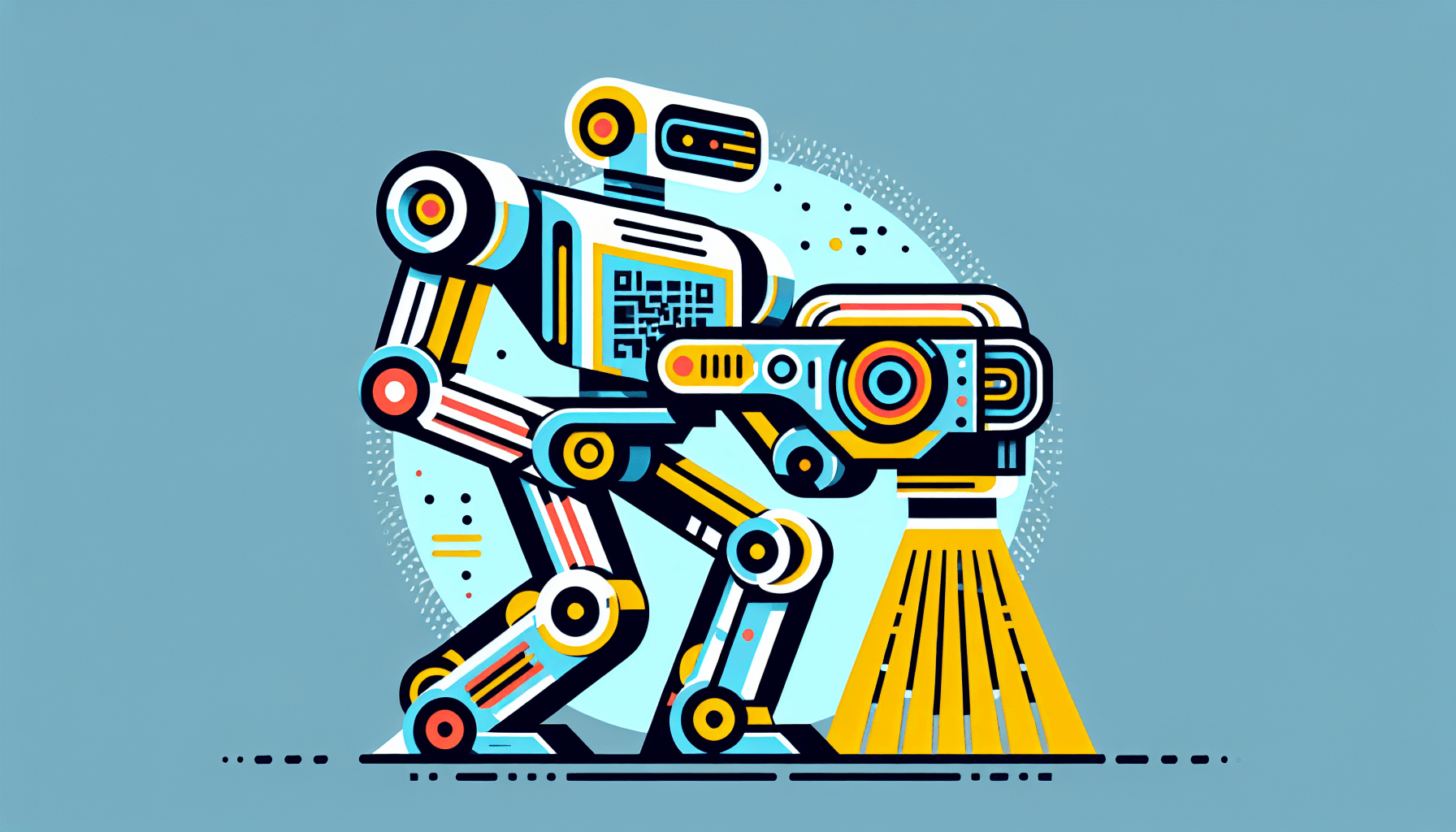
One approach to bypassing ZeroGPT is through human-aided editing. By having a human review and modify AI-generated content, subtle changes can be made to the text that may evade detection. This includes rephrasing sentences, altering the sequence of ideas, and incorporating idiomatic expressions that AI might not naturally use. However, this method requires significant human intervention, which can be time-consuming and may defeat the purpose of using AI for efficiency.
Another technique involves using multiple AI tools in tandem. By generating content with one AI tool and then using Humanizer AI or rewrite the content by hand, the resultant text might appear more human-like and less detectable by ZeroGPT. This method leverages different algorithms and training data sets to obscure the origin of the content. Nonetheless, this approach also has its limitations, as sophisticated detection tools continue to evolve and improve their capabilities.
It’s important to consider the ethical implications of attempting to bypass ZeroGPT. The development of AI detection tools is aimed at maintaining transparency and trust in digital content. Misusing technology to deceive detection systems undermines the integrity of content creation and can have broader consequences for the credibility of information shared online. Instead of seeking ways to bypass detection, focusing on ethical AI use and transparent practices will ultimately benefit the digital content ecosystem.
What Is Zero GPT?
Zero GPT, launched in January 2023 by Princeton student Edward Tian, is an AI content detector designed to identify AI-generated text. Within a week, it attracted over 30,000 users. The company secured $3.5 million in a seed round from several VC firms, allowing for improvements in accuracy and the addition of advanced features like in-depth analysis reports. Zero GPT has become a preferred tool for educators and academic institutions to detect AI-generated essays and papers.
How To Bypass Zero GPT AI Detection
Despite Zero GPT’s capabilities, it is not unbeatable. Here are several strategies to make your AI-generated content sound more human-like:
Use An AI Humanizer Like BypassGPT
BypassGPT is a powerful tool designed to make AI content sound authentically human. It rewrites AI-generated text using human-like writing styles, ensuring the output can bypass AI detectors like Zero GPT. BypassGPT maintains content uniqueness and contextual accuracy, making it a reliable choice for avoiding detection.
Key Features and Benefits of BypassGPT:
- Features:
- Advanced AI humanization techniques.
- Multiple AI bypass modes for any detection model.
- Compatibility with various content types including articles, essays, and ad copy.
- Benefits:
- Effectively avoids Zero GPT detection.
- User-friendly interface.
- Produces plagiarism-free and contextually accurate content.
Other Techniques to Bypass Zero GPT
Use More Specific AI Prompts: Specific prompts can improve output quality. For example, specifying “In the style of…” helps the AI match the desired tone and style, reducing the likelihood of detection.
Add More Sentence Variation: Varying sentence and paragraph lengths can help mimic natural human writing, making the content less predictable and harder for AI detectors to flag.
Edit Using More Human Expression: AI-generated text often lacks emotional nuance. Editing to include expressions of joy, humor, frustration, etc., can make the content sound more human.
Focus On Active Voice: AI text generators often produce passive voice constructions. Editing for active voice can make the content more natural and readable, thus harder for detectors to identify.
Include Personal Anecdotes: Adding personal stories, case studies, testimonials, and quotes can give the content a human touch that AI detectors struggle to replicate.
Importance of Avoiding Zero GPT AI Detection
Avoiding Zero GPT detection is critical for several compelling reasons. Let’s delve deeper into why this is so important:
Avoid Penalties: Numerous academic institutions and professional publications rely on Zero GPT to detect AI-generated content. Being flagged by Zero GPT can lead to serious repercussions, such as academic penalties, professional discreditation, or even legal consequences. Therefore, ensuring your content is undetectable protects your reputation and integrity in your field.
Maintain Credibility and Trust: Consistently producing content that passes AI detection builds credibility and trust with your audience. Readers, educators, and peers value authenticity, and consistently human-like content assures them of your genuine effort and expertise. This trust is essential for long-term success in any field, particularly in academia and professional writing.
Enhance Reader Engagement: AI-generated content often lacks the nuances and subtleties of human writing, making it less engaging and compelling. By ensuring your content sounds natural and human-like, you can significantly improve reader engagement. Engaged readers are more likely to share your work, contribute to discussions, and become loyal followers or clients.
Increase Originality and Uniqueness: AI-generated text can be repetitive and generic, which diminishes its value and originality. Bypassing AI detection ensures that your content stands out as unique and thought-provoking. This originality not only differentiates your work from others but also enhances its impact and value.
Promote Academic and Professional Integrity: In academic and professional settings, integrity is paramount. Using AI tools ethically and ensuring your content is undetectable by AI detectors demonstrates a commitment to honesty and originality. This integrity is crucial for building a strong professional reputation and achieving long-term career success.
Comply with Institutional Policies: Many institutions have strict policies against the use of AI-generated content. Violating these policies can result in severe disciplinary actions, including expulsion or job termination. By making your content undetectable, you ensure compliance with these policies and avoid potential disciplinary measures.
Facilitate Creative and Intellectual Growth: Relying solely on AI for content creation can stifle creativity and intellectual growth. By actively engaging in the writing and editing process to bypass AI detection, you enhance your skills and foster creative thinking. This engagement not only improves your writing but also contributes to personal and professional development.
Adapt to Evolving AI Detection Technologies: AI detection technologies are continually evolving, becoming more sophisticated and accurate. By learning how to effectively bypass these detectors, you stay ahead of technological advancements and ensure your content remains relevant and compliant with the latest standards.
Enhance Marketability and Competitiveness: In a competitive job market, the ability to produce high-quality, human-like content is a valuable skill. Demonstrating this capability can make you more marketable to employers and clients, providing a competitive edge in your career or business.
Contribute to Ethical AI Use: As AI continues to integrate into various aspects of life, promoting ethical AI use becomes increasingly important. By ensuring your content bypasses AI detection, you contribute to the responsible and ethical use of AI technologies, setting a positive example for others in your field.

Netus AI as a Comprehensive AI Bypasser
Netus AI stands out as a comprehensive AI bypasser, specifically designed to counter advanced AI detection mechanisms. This tool leverages sophisticated natural language processing (NLP) algorithms and extensive machine learning models to transform AI-generated content into human-like text. Netus AI’s ability to adapt and modify sentence structures, vocabulary, and stylistic elements ensures that the output mimics human writing patterns, making it undetectable by most AI detectors. By continuously updating its algorithms and training models, Netus AI stays ahead of the latest detection technologies, providing a reliable solution for users seeking to bypass AI detection. Its user-friendly interface and seamless integration with various content platforms make it an indispensable tool for content creators aiming to maintain originality and avoid penalties associated with AI-generated text.

